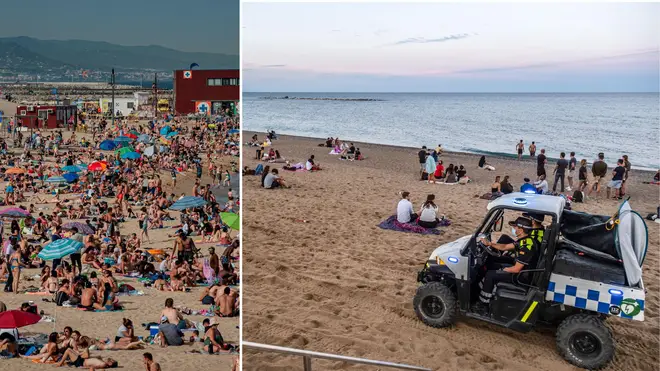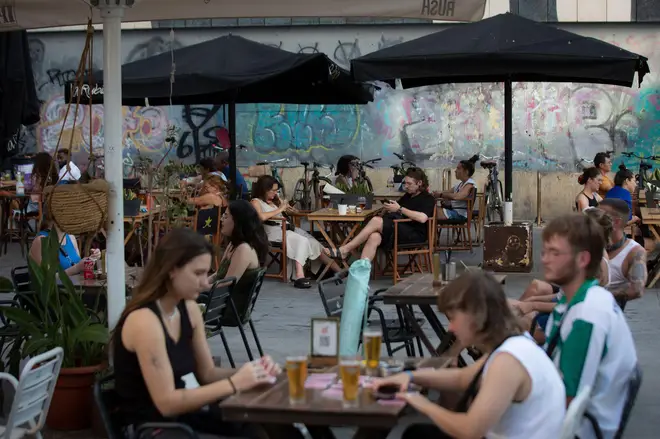
Oli Dugmore 4am - 7am
14 June 2023, 14:58

Those heading to Spain this summer holiday have been reminded to stay wary of the country’s laws on swimwear dress codes as venturing out in bikinis and swimming trunks could land tourists with a hefty fine.
The UK Foreign Office has reminded those with trips to Spain lined up for this summer to stay aware of the country's areas that have strict dress codes and alcohol restrictions in place.
Typically affecting seafront promenades or surrounding streets, the laws are implemented to ensure tourists visiting the country are dressed appropriately in areas beyond the beach.
In Barcelona, which attracts on average 27 million tourists a year, rules dictate that anyone caught in a bikini in the town centre could be fined up to £250. Similarly in the Balearic Islands anyone caught in swimwear, or walking around shirtless, in areas beyond the beach could be hit with an up to £500 fine.
In a statement, the Foreign Office said: “In some parts of Spain it’s against the law to be in the street wearing only a bikini or swimming shorts/trunks. Being bare-chested has also been banned in some areas of Spain. Some local councils will impose fines if you’re caught wearing swimwear on the seafront promenade or the adjacent streets.
“For security reasons, some public authorities in Spain don’t allow the burka or niqab to be worn in their buildings. If you visit town council buildings wearing a burka or niqab, you may be asked to remove it while inside.”
Strict dress codes are in place across a number of restaurants in Majorca, as 11 of the island's seaside restaurants have a ban on clothes associated with “drunken tourism”.
The chief executive of Palma Beach, Juan Miguel Ferrer said this includes anyone dressed in swimwear, wearing a football jersey or anyone shirtless.
Listen and subscribe to Unprecedented: Inside Downing Street on Global Player

Read more: Economy grows slightly in April, boosted by more spending in pubs and bars
Rules on “drunken tourism” also extend to alcohol consumption, as the Foreign Office also noted the Balearic Islands’ introduction of new rules to limit the sale and availability of alcohol.
A new law introduced in January last year also means those heading to Magaluf, El Arenal and San Antonio in Ibiza for an all-inclusive trip will face limits on how many boozy drinks they can have, with a maximum of three at lunch and three during an evening meal.
Iago Negueruela, the tourism minister for the Balearic Islands said: “We want British tourists. We don’t want this type of tourism. British tourism is essential for our islands. We share with the British government the view that some images of British tourists are embarrassing.
“We want to put a stop to bad behaviour. We will increase the police presence in these areas and the number of inspectors. We will have zero tolerance for tourism excesses.”
To control “drunken tourism” further, holiday resorts in Magaluf, Playa de Palma and San Antonio are now banned from holding happy hours, open bars, two-for-one drinks, pub crawls, party boat trips and selling alcohol in vending machines.
The Foreign Office also reminded: “In designated areas of the resorts, there are prohibitions on happy hours, open bars (such as all you can drink in 1-hour offers), the sale of alcohol from vending machines, self-service alcohol dispensers and the organising of pub-crawls and party boat trips.
“The law also prohibits “off-licence” sales between 9.30pm and 8am. In addition, hotels and other establishments are obliged to evict clients found to be behaving dangerously on balconies, with fines for both the client and the establishment.”